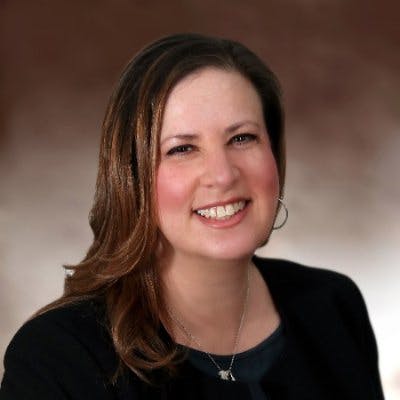
Break the loop of forgetting passwords and making new ones. Try these tips for creating safer passwords and keeping track of them.
When yet another website asks you to create a password, are you tempted to just write “12345” or use the name of the store? Or have you been using the same password since you made your first email address? If so, you’re putting yourself at risk — even if that particular account isn’t important.
“We have too many passwords today as a consumer,” Josh Yavor, chief information security officer at cybersecurity company Tessian, told the Washington Post. “If you think about all the different things you have to log in to, the number is just way too high for anyone to be able to keep track of all the different passwords and do the right thing every single time.”
Most adults have about 200 accounts that require passwords, and security experts recommend that you use a different password for each one.
Thankfully, there are ways to keep all your accounts safe — and avoid pressing the dreaded “Forgot Password” button and having to create a new password yet again. Try these tips for making passwords that will last, and learn easy ways to keep track of them.
Figure out which streaming service accounts are right for you.
Why do I need different passwords?
You might be wondering what the big deal is about your online accounts. After all, who’s interested in hacking into your Netflix?
The big problem is when there’s a “data breach,” releasing confidential information that just shouldn’t be public. If your password is part of a breach, hackers can try to use it on different sites and services in a “stuffing” attack. That’s when they cruise around the internet trying to unlock more of your accounts.
Using this method, a hacker might be able to use your Netflix password to get into your online banking service, your social security, or other important accounts.
It’s more than just passwords. Learn how to keep your documents and valuables safe at home.
Making super secure passwords
The best way to protect yourself from hackers and their attacks is to know their tricks. That info will help you avoid issues by creating strong enough passwords.
Mix it up
The first thing you can do is make sure that all of your passwords are different. That way, if a hacker gets their hands on your Netflix account, it doesn’t do them any good when they’re trying to access your bank or other sensitive information. And small tweaks aren’t enough! You need to do more than add “Hulu” to the end, or a different capital letter.
Avoiding the old standards
You also need to be unpredictable. Despite everything we know about hacking, the most-used password in the world is still “12345.” “Password” and “11111” are the runners up.
But you should also avoid things like your kids’ birthdates, pets’ names, your favorite sports team, even your mother’s maiden name. Basically, it’s best to avoid anything that’s meaningful to you, especially if someone can learn it by searching your social media.
Also, be wary of those cute online quizzes that tell you which celebrity or dog or rock star you’d be when you enter in a bunch of private information! You could be giving away hints to your passwords or security questions.
To make your password virtually un-guessable, you can use a password generator. These services create a totally randomized string of characters and numbers, so you don’t run the risk of creating anything recognizable. Of course, they’re hard to remember. That’s why you need to store your secure passwords in a secure way.
New tech: all you need is a smart phone for easier travel.
Storing your passwords
Once you’ve created your 200 or so secure passwords, you have to figure out how to keep track of them. Thankfully, memorizing them isn’t your only option.
Browser password managers
Your easiest option is to allow your internet browser to keep track of your passwords. Most major internet browsers like Chrome, Firefox, and Safari offer password management features that automatically ask if you want to store your password when you create a new account.
These services are free and automated, and they barely require a second step to store your password. Of course, they only work when you’re in the browser that has the passwords stored. If you try to log into your account on a different app or a different computer or phone, you’ll have to have the password handy.
These password managers are considered a safe option on your own computer, tablet, or smartphone. You should never let a browser store your password on a device that belongs to someone else, whether it’s a friend or at the local library.
Storage services
You can also use a password management app, like Norton or TeamPassword. They store all of your passwords in one location, and all you need to remember is your one master password.
These services are especially handy because you don’t need to be using the same browser — or even the same device — in order to keep track of your passwords. Some of them charge a fee, but many offer a free option that’s likely to meet your basic password needs.
Storage mishaps
However you choose to store your passwords, keep these tips in mind:
● Writing passwords down might keep them safe from hackers, but not from burglars. Don’t write your passwords down in one place.
● Keeping your passwords in a Word or Google document may help you keep track of them, but it’s also a cheat sheet for the right hacker. Keep your passwords in an app or a browser, where they’re more secure.
● It’s easy to think you should email yourself a password so you don't forget it, but that’s giving a hacker a pathway to your passwords. Emails are often stored on the computers of the email company. Even your deleted emails may sit in the email trash folder.
Protecting your health with Medicare
A super secure password is a smart way to protect yourself from hackers or other threats. Another smart way to protect yourself is with the right Medicare plan. You could choose a Medicare Advantage plan that provides coverage for costly prescription drugs, and protects you with a cap on out-of-pocket expenses. To compare plans in your area, give us a call or check out our easy-to-use Find a Plan tool.
Additional resources
- National Cyber Security Centre: Password Managers: Using Browsers and Apps to Safely Store Your Passwords
- Washington Post: Ultimate Guide to Managing Your Passwords
- Cyber News: Most Common Passwords in 2024
- PC Magazine: How to Use a Random Password Generator



